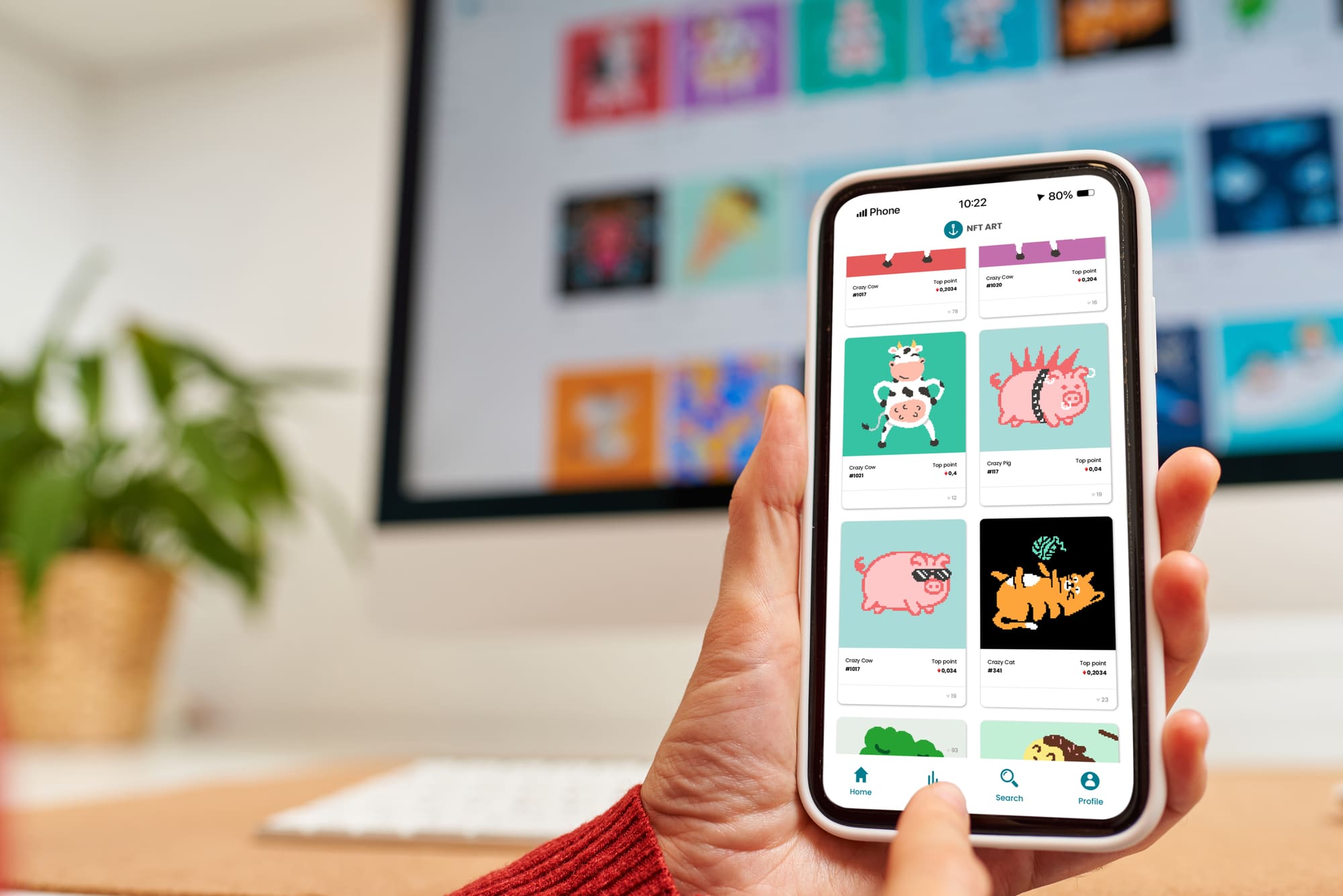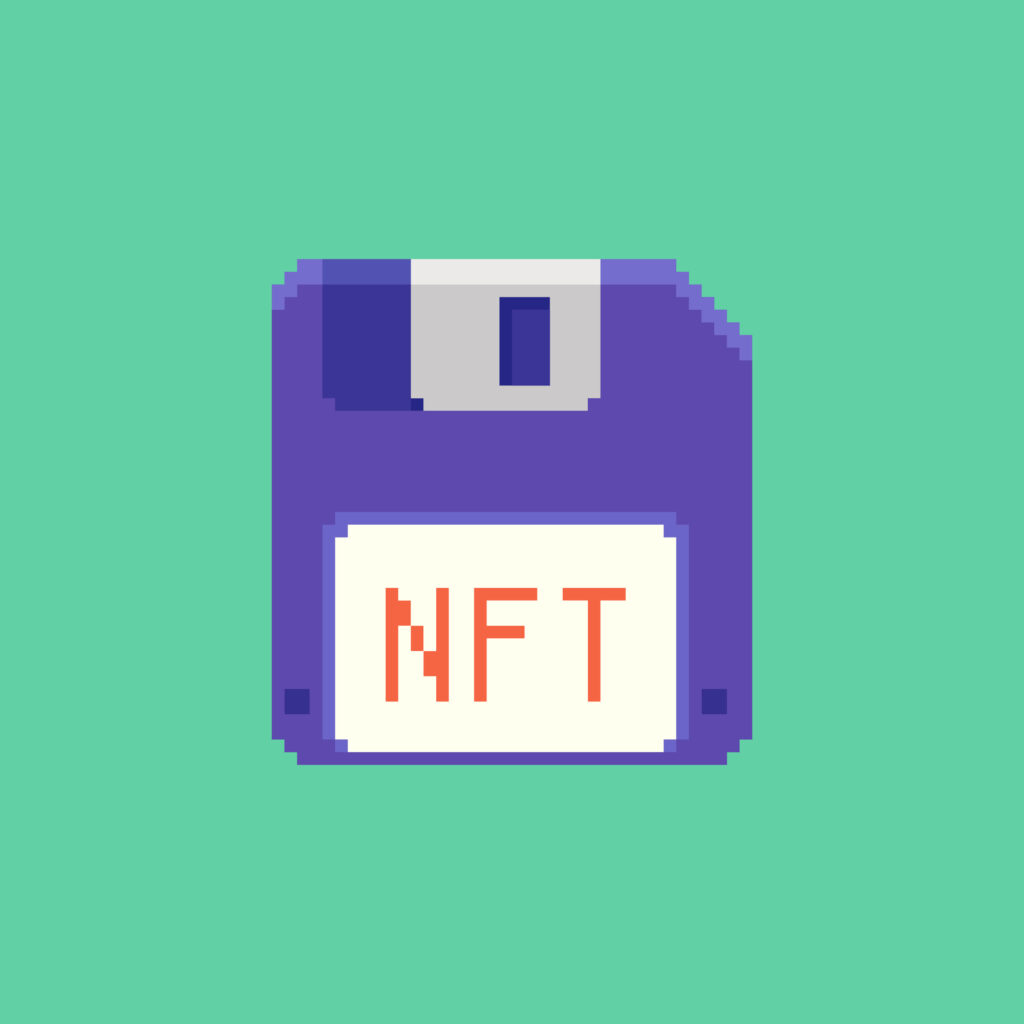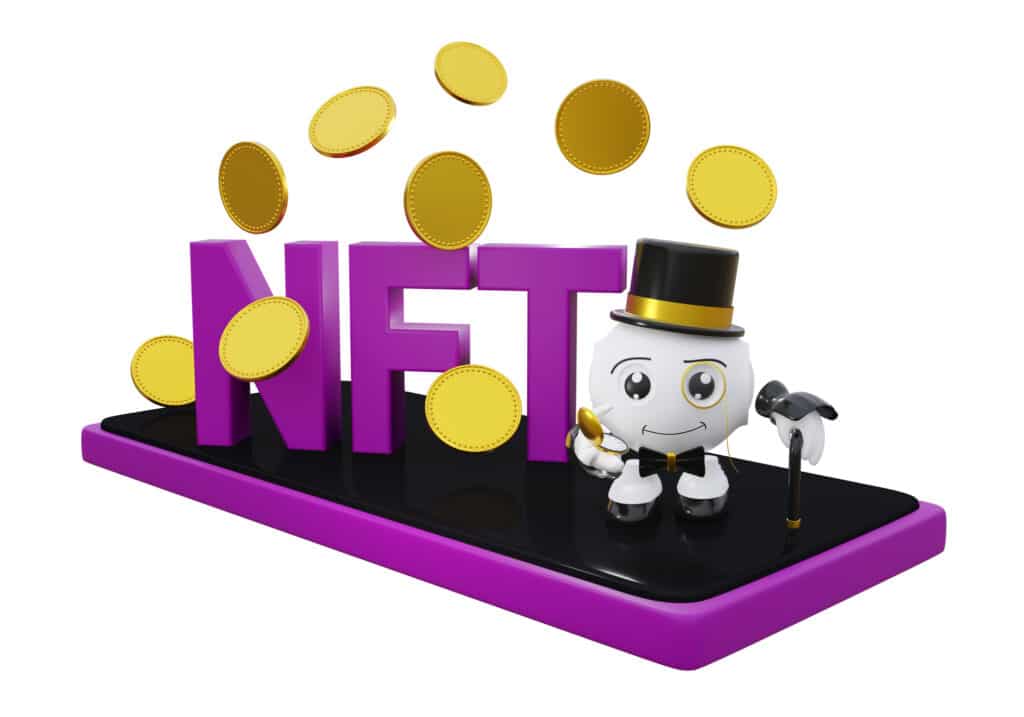NFT Scams: How to Avoid Falling Victim

Cryptocurrencies, Investment
Non-fungible tokens (NFTs) have taken over the world by storm as they dominate a significant market share of the crypto industry. The digitalization feature of NFTs is considered its most unique trait. Since heavy technology is involved behind its conception, it’s undoubtedly prone to scams and hacks.
What’s more dangerous is nobody can distinguish between a scam and what’s real since scams are perfectly masked with sophistication nowadays. However, as a frequent NFT collector, you must be well aware of all the scams that can plague your digital library and access all of your information. Here’s how you can protect your NFTs and yourself from scams.

Common NFT Scams
NFTs are prone to get hacked as cybercriminals see it as a perfect opportunity since there’s a high volume of money exchange to acquire NFTs. It’s best to know all NFT scams before you find yourself a victim of one of the scams. Numerous hackers find it easy to perform a fraud as NFTs are still pretty new and tricky to understand. Here are a few scams you should know of and hopefully avoid.
Pump-and-Dump Schemes
Pump-and-dump are money laundering schemes where people buy a bunch of NFTs or equivalent crypto, driving the sales relatively high. Once the hackers successfully increase the demand artificially, they cash out their share and leave other people behind with nothing but a significant loss.
Those victims find themselves with useless assets that don’t have any profitability left to cash. Pump-and-dump schemes are becoming relatively constant in the crypto world, unfortunately. That’s one of the significant flaws with digital technology, and it isn’t the safest to dabble with. However, it can be avoided if one educates oneself on dangerous scams.
Catfishing
Here’s the thing about NFTs: everything is digital. Nothing involving an NFT would have a physical presence, so you basically won’t be able to tell apart between what’s real and what’s not. Every business-related function, including marketing of NFTs, is done online, making it more challenging for people to be aware of a scam.
Many NFTs are promoted through social media influencers and bloggers, allowing hackers to pose as one. Catfishing gives rise to creating fake personas, which puts your information at risk. Once a hacker gets hold of your private wallet key, they can drain all of your cryptos, leaving you staring at a hefty loss.
Counterfeit NFTs
Every NFT collector should know that collecting a piece of art doesn’t mean you have intellectual property (IP) rights to it. Luckily, OpenSea (an NFT marketplace) allows everyone to turn anything into an NFT without transferring IP rights to them.
However, many scammers steal other artists' work and pose them as theirs. They further auction them off on several NFT marketplaces, having people think those digital art pieces are theirs. Scammers then earn their money through illegal means by having people pay them for selling "their" work. This scam makes the actual artist's work worthless, and when the sale goes through, it'd be too late to recover any money.
Phishing Scams
To buy NFTs, you'll have first to create a wallet on an NFT marketplace. Ethereum should back up that wallet since all NFT marketplaces are on top of the Ethereum blockchain. After you have a fully-funded crypto wallet that allows you to purchase NFTs, you might view fake advertisements that ask you to provide your private wallet key.
This is called a phishing scam: you’re asked to enter your personal information disguised as an official and proper email. MetaMask (an NFT marketplace) was recently plagued with a phishing scam where its users were asked to enter a 12-word security seed. Such fake advertisements combined with shady pop-ups make for the perfect phishing scams that you should be well aware of.

How to Avoid NFT Scams
Knowing the possible red flags can help you steer clear of any NFT scam while allowing you to invest in your favorite NFT. Since buying an NFT can cost a lot of money, it’s best to know all the different scams cybercriminals plan and what possible remedies or prevention tools you can apply not to fall victim to such scams.
Avoiding Pump-and-Dump Schemes
To recognize whether an NFT you're buying is part of a pump-and-dump scheme, you need to look at all the transactions that take place on the Ethereum blockchain. This gives you the official information you need to tell if you're being taken advantage of. The blockchain is a pretty transparent platform where no one can reverse transactions. Hence, before buying an NFT, look at that project's complete transactions.
Avoiding Catfishing
If you’ve got a direct message (DM) from someone claiming to be an influencer and trying to sell you an NFT, please know it’s probably a fake profile. The thing is, nobody in the NFT world would approach you to buy an NFT. Everybody knows people come to the marketplace themselves, not the other way around. So, please be mindful before giving out any private information to any “influencer” on social media if you want to avoid being catfished.
Avoiding Counterfeit NFTs
The best way to avoid buying any counterfeit NFTs is by checking if the NFT being sold belongs to a verified account. Every verified account on the NFT marketplace will have a blue tick mark next to it. If you cannot find the account, there’s your red flag number one. You can proceed with your research, though, and look for the artist on other social media platforms. Ask them if the art is theirs, or look at their current collection to crosscheck if that NFT belongs to them.
Avoiding Phishing Attacks
You should remember that you won’t ever be asked your seed phrase on an NFT marketplace. The one time you might have to enter it is if you’re backing your hardware or recovering your password. So, whenever you spot a pop-up that asks for your seed phrase, immediately exit the site as it’s a phishing attack. Also, never store your seed phrase in your phone or anywhere else, as it accesses your private wallet containing all of your cryptos.



